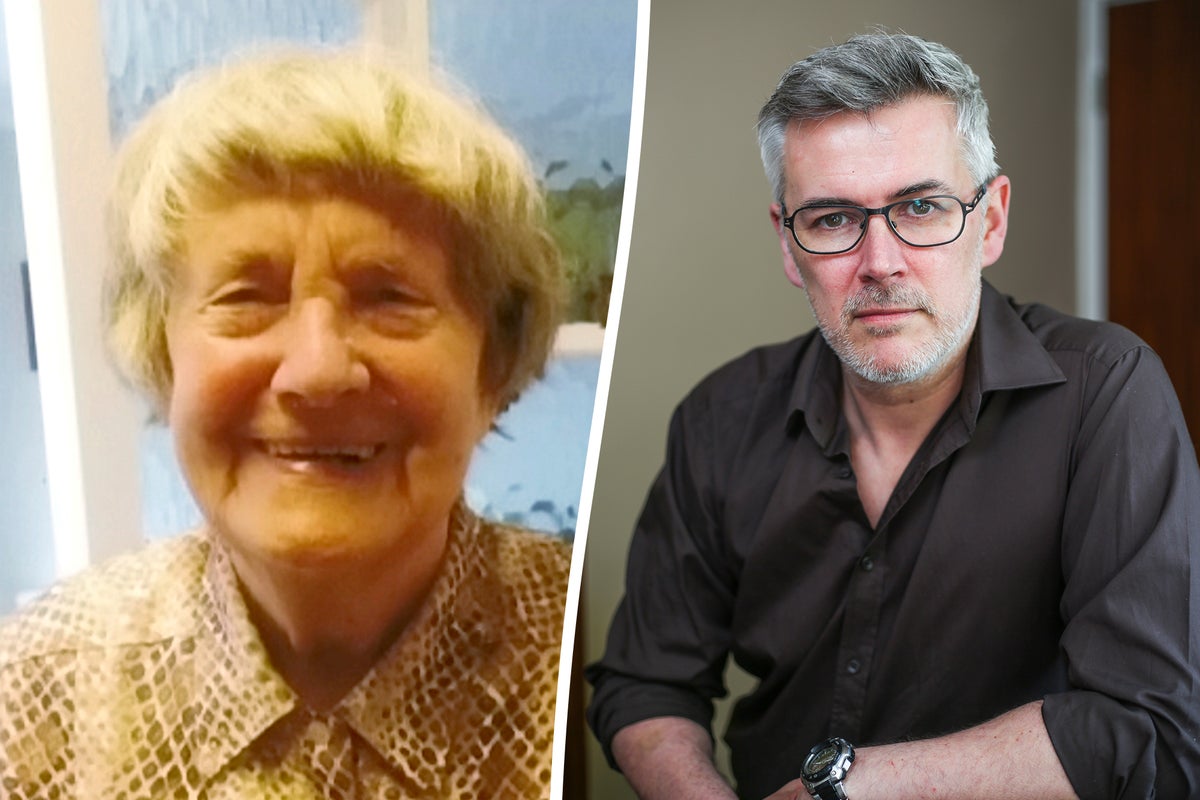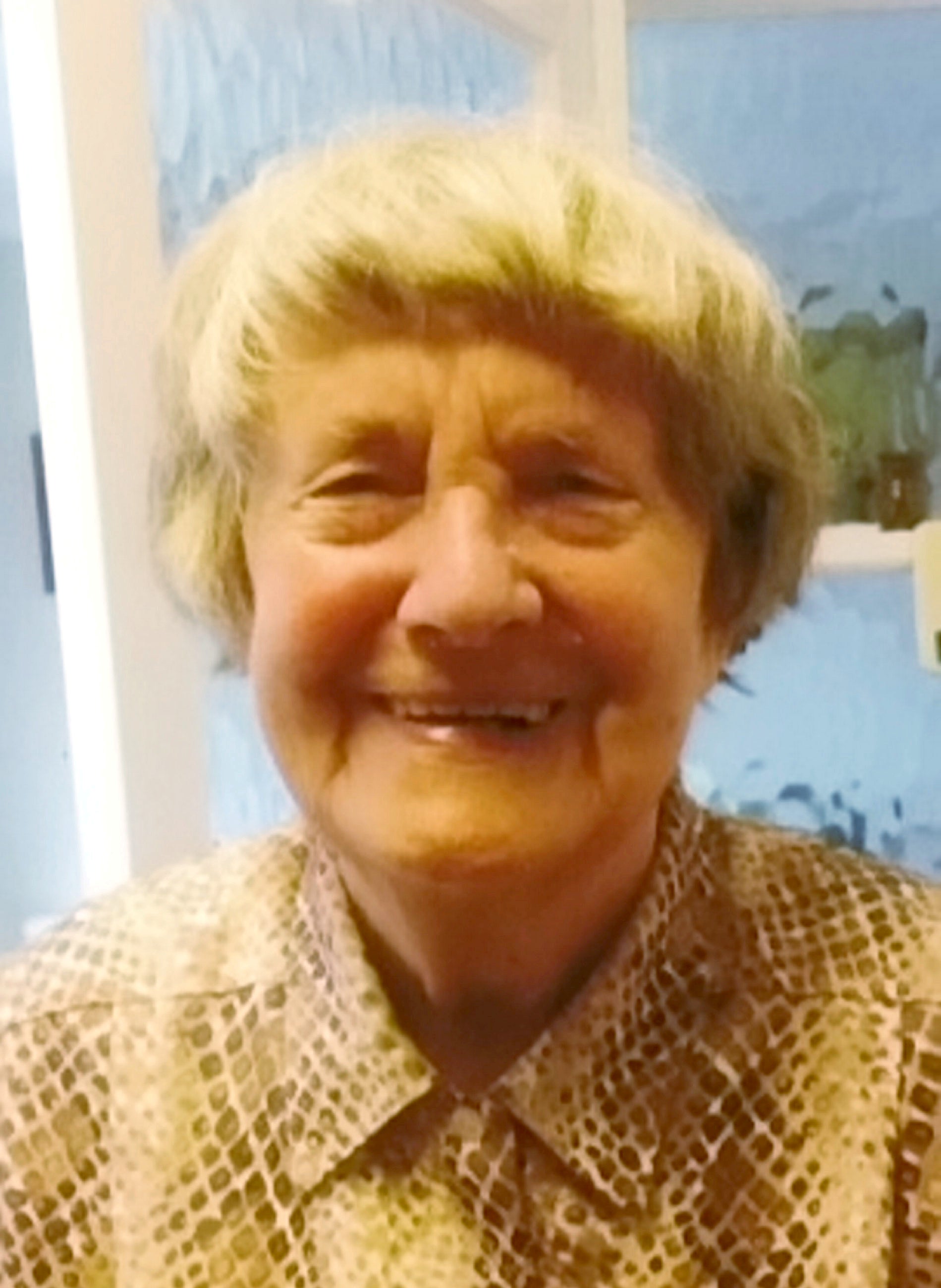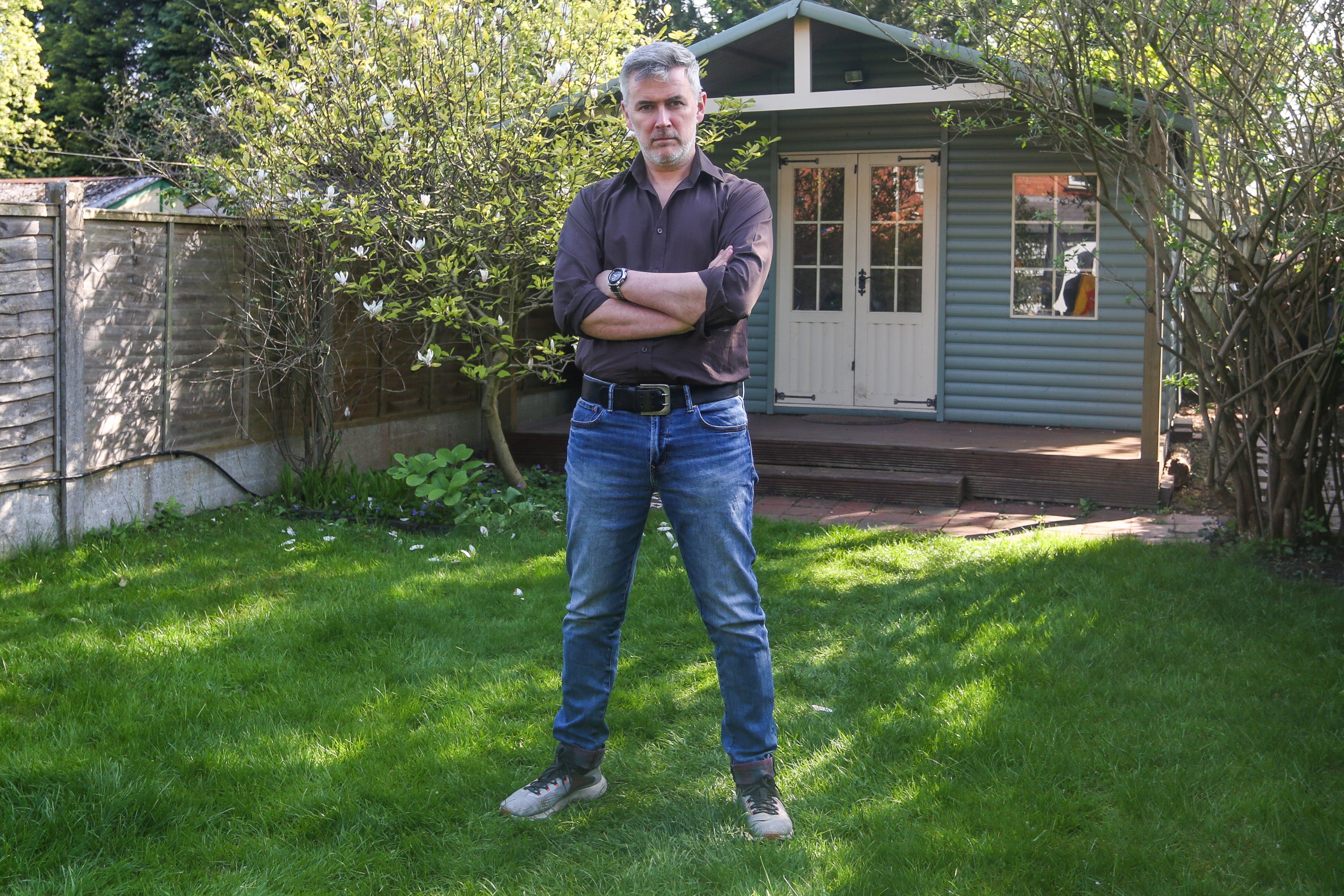
An elderly dementia patient living in a £4,000-a-month nursing home had maggots crawling inside an open wound, which bosses blamed on “a heatwave”.
Kathleen Hines, 92, was having a cancer-triggered sore checked when staff made the revolting discovery.
Her nephew Chris was told by managers that hot weather had triggered an increase in flies to hatch in the nursing home.
Chris, who had power of attorney over his aunt’s financial affairs, was also shocked to discover staff had been “drugging” Kathleen to stop her wandering around at night.
He first realised something was wrong when she started falling asleep in the middle of Skype calls he had with her during the Covid lockdown.
Kathleen, a former BT telephonist, died last August almost three years after moving into Ledbury Nursing Home in Herefordshire which is run by Shaw Healthcare.
Chris, 51, has complained to the home and is refusing to pay her final bill until they issue a full apology.
He said: “It seemed strange to me that she should doze off in the middle of a chat in the morning, so I phoned the home to find out what was going on.
“The nurse I spoke to advised that if was because of the Zopiclone she had been given.
“I phoned in and asked why she had been given the Zopiclone and was told that it was because she was ‘walking around at night’.
“I spoke to friends who were working in the care sector who told me this wasn’t right at all and I should take action to stop them chemically restraining Kathleen.
“A further conversation with the home revealed that some 2-3 months after Kath was given Zopiclone at an initial dose of 3.25mg, the dosage was raised to 7.5mg.
“This is the maximum dosage that can be prescribed and would be sufficient to put me, an adult male, on my back, let alone a 90 year-old who weighs only about 50kg.

“Just to clarify, Ledbury Nursing Home should have been just that - her home, and she was paying nearly £4,000-a-month for it to be that.
“She was perfectly entitled to walk around at night if that’s what she wanted to.
“Shaw Healthcare’s job was to facilitate her wakefulness, to make sure she was safe and happy while she was awake.
“Their job was not to drug her into oblivion so they did not have to provide a proper number of staff.
“Soon afterwards - the following day I think - I spoke to Safeguarding, DoLS and the CQC and they did help me put a stop to it.
“Or so I thought. I gave verbal instruction that Kath was not to be given Zopiclone any more.
“However, the MAR charts that were (eventually) obtained through a subject access request show that even after they were told not to use it, they still persisted in giving it to her albeit at a more intermittent rate.”
Chris said he was prompted to take action after he was told staff had made a revolting discovery while dressing her sores.
He said: “A final blow came just a few weeks before Kath passed away when I received a phone call at work from the home, to inform me that Kath had maggots in her skin cancer.
“I mentioned this to many medical professionals and to a person, they are horrified. That this can have been allowed to happen in a clinical setting is beyond belief.”

Ledbury Nursing Home apologised for the maggots but insisted that Kathleen’s medication was administered in line with the “GPs medical advice”.
A spokesperson said: “Medication for residents is prescribed by GPs based on their professional assessments.
“Our duty is to fulfil the GPs medical advice by collecting and administering the medication which we did in the case of Ms Hines.
“Wound management requires the affected area to be exposed and covered at various stages to assist with the healing process and regular assessments of the wound are carried out by qualified nurses.
“During one of these regular checks a nurse spotted an issue with the wound and immediately cleaned and dressed the wound, and reported the incident to the Council’s safeguarding unit in line with care industry guidelines.
“We appreciate how awful it sounds and wish that it could have been prevented but maggots being spotted in wounds is something that is not completely unavoidable, especially during a heatwave where eggs can initially avoid visible inspection and hatch within 12 hours.
“The independent safeguarding investigation confirmed that we had quickly and effectively dealt with the situation.”







